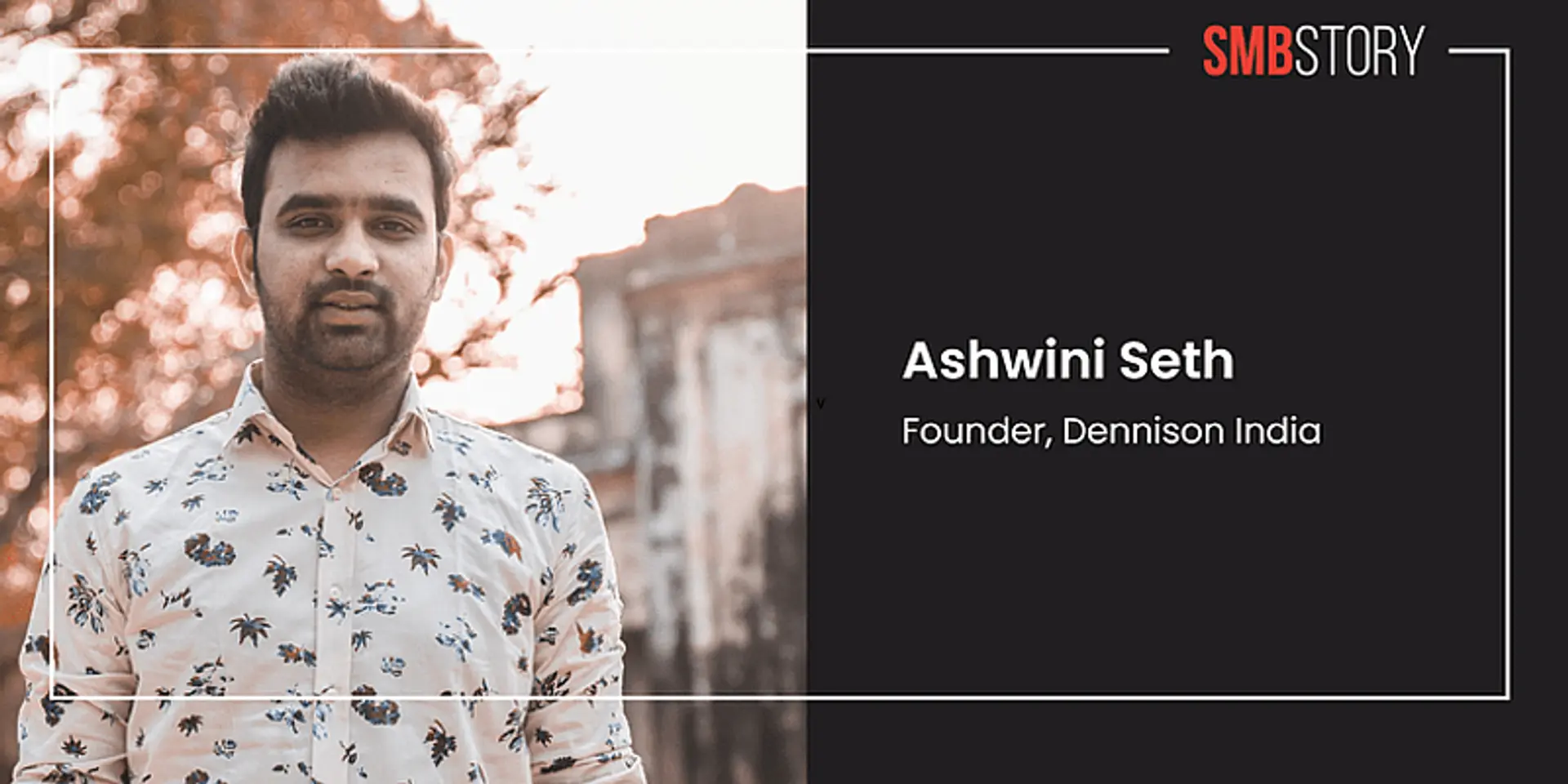Started with Rs 10K in 1988, Gwalior-based Dennison is using ecommerce to thrive in the new normal
When Ashwini Seth joined his family business Dennison Garments in 2014, he was sure he couldn’t sit at the shop and wait for customers to arrive. Ashwini’s foresight has now helped the ready-to-wear menswear brand, which began its journey in 1988, grow despite the COVID-19 pandemic.
Years before the COVID-19 pandemic pushed retail businesses online, ready-to-wear menswear brand Dennison Garments was steadily building its online presence.
The Gwalior-based business’ digital investment paid off in 2020. Dennison India, the garment company's online arm, was growing between 2014 and 2020. However, Dennison saw a jump in sales amid the COVID-19 pandemic, with revenue doubling from Rs 2.06 crore in FY20 to Rs 4.65 crore in FY21.
Dennison’s digital journey began way back in 2014, when Ashwini Seth joined his family business. An MBA graduate, Ashwini was sure that sitting in his father’s shop to wait for customers to arrive was not his cup of tea. He had been following the ecommerce trend since 2011 and knew that the space had potential to grow.
Ashwini’s father Rajendra Seth set up Dennison Garments, which sells shirts and trousers for men, in 1988. Over three decades of existence, the business saw several changes. However, nothing could have prepared it for a pandemic. Almost overnight, companies had to rethink operations to fit into the new normal. For Dennison, which was early in the ecommerce game, the shift was relatively easier to handle.
Dennison’s inception story
Back in the 1980s, Rajendra was running an apparel business which made uniforms for the Indian Army. Ashwini says his father would buy fabric from Mumbai (then Bombay) and Gujarat and get it manufactured locally.
While running the uniforms business, Rajendra discovered a gap in the Indian menswear market. Ashwini says that several people in his father’s social circle pointed out that there weren’t many brands selling ready-to-wear shirts for men. The ones available in the market were costly and getting a shirt stitched was both time consuming and expensive.
During this time, India was also seeing rapid transformation in consumer behaviour.
“The vision of making shirts at affordable prices would help in reaching the masses somehow clicked to my father,” Ashwini tells SMBStory.
Rajendra sold his scooter to launch Dennison with an investment of Rs 10,000. Initially, the business had four stitching machines in a small unit in Gwalior. The first few shirts were rolled out in 1988 and were priced at Rs 98. This range was called Double EX shirts.
The ready-to-wear shirts found traction and within a year, Rajendra opened another store.

Paving your own path
Although Dennison had a good beginning, its journey hasn’t been smooth. In 1997, Rajendra exited the business and handed over operations to his family (consisting of five brothers). Ashwini says this uncles lacked his father’s vision for Dennison. Rajendra then decided to take the reins back in 2008.
Today, Rajendra and Harsh Seth (Ashwini’s brother), run the retail business which has grown to two outlets in Gwalior. The ecommerce business, which Ashwini runs, was separated from the retail business in 2017 due to accounting issues.
Ashwin declined to disclose the retail unit’s revenue numbers.
When Ashwini dived into the ecommerce vertical, he had several challenges to tackle. Moreover, Gwalior lacked the infrastructure to support ecommerce businesses in 2010.
He says that the first step was to get listed on ecommerce platform Snapdeal. The business, according to Ashwini, gained popularity after being listed on Amazon India in 2016.
Later it got listed on platforms like Myntra and even launched its own website in 2018, but that venture was soon shut due to lack of content creation.
In the last two years, however, a focus creating content on Instagram and Facebook has helped the business in engaging with customers and enhancing brand value, Ashwini says.
Business in times of COVID-19
The COVID-19 pandemic, according to Ashwini, has democratised ecommerce and helped businesses improve sales.
“Initially, not everyone had access to the internet or ecommerce. Only a certain section of people ordered online which has changed. Today, it has become a necessity which has led to the sector booming,” he says.
Ashwini is also confident that in a market as crowded as men’s ready-to-wear garments, Dennison will stand out in terms of both quality and affordability. The Indian menswear space is pegged at $23,336 million (in 2021) according to a report by research platform, Statista, and currently has several players such as Peter England, Allen Solly, Monte Carlo, Flying Machines, Raymond, among others.
Dennison shirts are priced starting from Rs 700. According to Ashwini, the company is not competing with the bigger brands and “they have much to do.”
Moreover, the brand is also upping its game by increasing its focus on sustainability.
Going forward, Dennison is tapping into sustainability. Among other initiatives, it plans to sell shirts made from hemp. “We want to make apparel that has the least carbon footprint,” he says.
In the next fiscal year, Dennison also wants to add a women's wear and footwear category to its product lineup.
While Dennison has failed to catch the direct-to-consumer (D2C) wave in India, Ashwini is confident that the business will keep innovating to stay relevant. For now, Ashwini is focussing on a website redesign.
Edited by Affirunisa Kankudti





